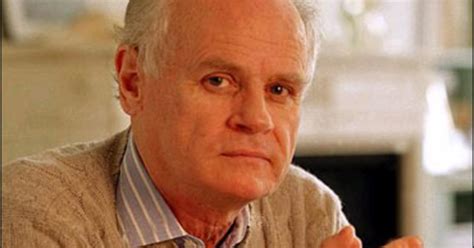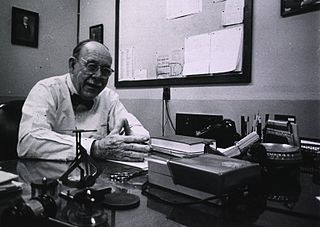A Quote by John Gregory Dunne
An Episcopalian military institution when it was founded near the turn of the century, Harvard for years had an implicit quota system that effectively limited the number of Jewish admissions.
Related Quotes
Here's what I don't think works: An economic system that was founded in the 16th century and another that was founded in the 19th century. I'm tired of this discussion of capitalism and socialism; we live in the 21st century, we need an economic system that has democracy as its underpinnings and an ethical code.
Here's what I don't think works: An economic system that was founded in the 16th century and another that was founded in the 19th century. I'm tired of this discussion of capitalism and socialism; we live in the 21st century; we need an economic system that has democracy as its underpinnings and an ethical code.
That said, there are a few clear factors that determine the potential of a university to reach the highest levels of excellence. In the case of Harvard University, it was true that by the time of its tercentenary (300th anniversary of its founding) in 1936, Harvard had already achieved a reputation as a world-class institution. Harvard did not have the stature that it does today.
The quota idea is a good one, but there are two problems with it. The first is clear: A quota system would also require all European countries to be prepared to take refugees. And secondly: What happens when the quota has been filled? Would we then simply tell those who are threatened, sorry but we have to send you back?
Let's not forget that for thousands of years the institution of marriage has been between a man and a woman. Until quite recently, in a limited number of countries, there has been no such thing as a marriage between persons of the same gender. Suddenly we are faced with the claim that thousands of years of human experience should be set aside because we should not discriminate in relation to the institution of marriage. When that claim is made, the burden of proving that this step will not undo the wisdom and stability of millennia of experience lies on those who would make the change.
If you take a look at places like Harvard, it's striking. In the early ,50s, I think there were a handful of Jewish professors, three or four. But by the 1960s, there were Jewish deans and administrators. In fact, one of the reasons why MIT became a great university was because they admitted Jews whereas Harvard did not.
Implicit in the activist conception of government is the assumption that you can take the good things in a complex system for granted, and just improve the things that are not so good. What is lacking in this conception is any sense that a society, an institution, or even a single human being, is an intricate system of fragile inter-relationships, whose complexities are little understood and easily destabilized.




































